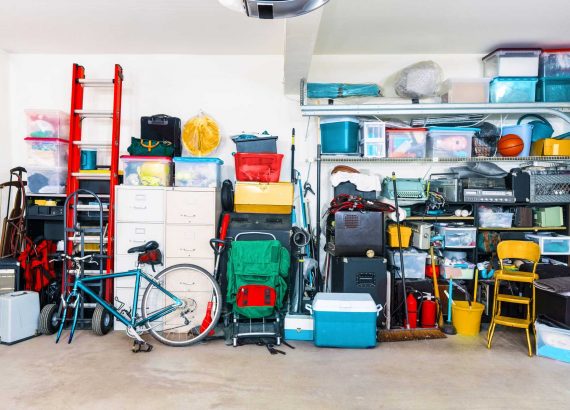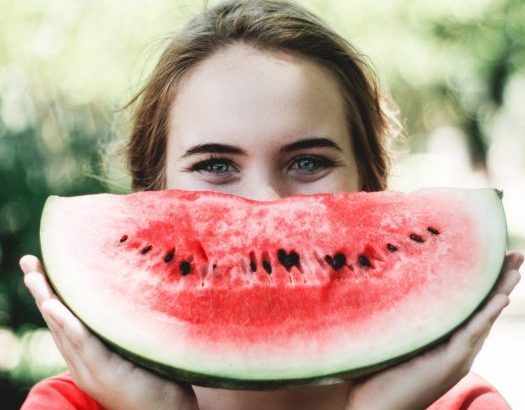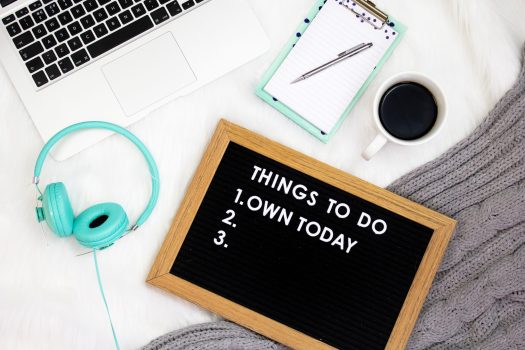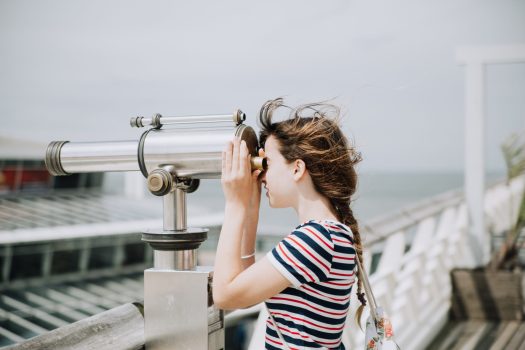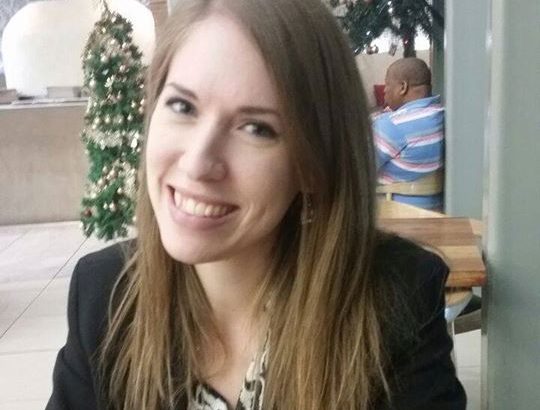Sleep and mental health: The latest science and tips to improve both
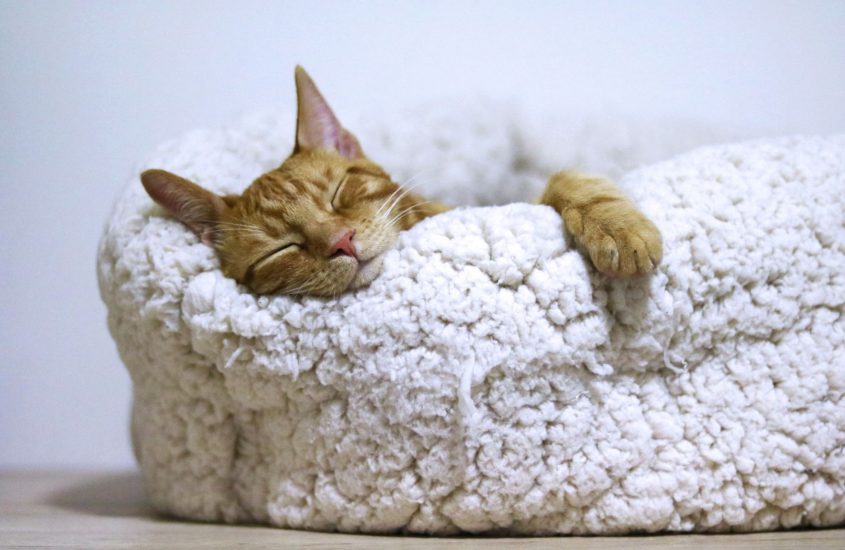
I’ve written a bit about healthy sleeping patterns in the past, and it’s a very important topic in the modern world where living on little sleep is praised. Sylvester from Fingerprint for Success wrote an interesting article (backed up by science) about sleep and mental health that I’d love to share with you. Here’s the link to the original article, but it’s also below.
Over to Sylvester:
What do sleep and mental health have to do with each other? As it turns out, a lot. Research shows a strong link between your mental health and your sleep habits; they both affect each other.
Even with how crucial shuteye is to our wellbeing, sleep deprivation is alarmingly common. CDC data shows that 35.2% of American adults get fewer than seven hours of sleep a night, which is less than the minimum recommendation.
That means one in three adults is walking around without sufficient sleep to support optimal functioning. That’s unsettling-especially given what research shows about the link between sleep and mental health, which we’ll go over below.
Sleep and mental health: What does the science say?
The link between mental illness and poor sleep quality was recently confirmed by the largest study of its kind. A 2021 study of more than 89,000 people in the UK found that those who had been previously diagnosed with a mental health disorder were more likely to have poor sleep quality, including waking up more often and staying awake for longer periods of time.
This, of course, begs the question: Does mental illness cause poor sleep quality? Or does poor sleep quality cause mental illness? “The relationship between sleep and mental health is bi-directional,” the study’s lead author Dr. Michael Wainberg told CAMH. “Poor sleep contributes to poor mental health, and poor mental health contributes to poor sleep. Sleep pattern differences were a feature of all mental illnesses we studied regardless of diagnosis.”
Covid stress and anxiety can lead to sleep problems
During the Covid pandemic, many people lost sleep or slept more than usual. Either deviation is linked to depression, anxiety and stress, according to research by Washington State University staff scientist Siny Tsang and colleagues. Tsang’s study looked at responses from more than 900 twins surveyed shortly after Covid restrictions began. 32.9% said they were sleeping less, while another 29.8% said they were sleeping more. The researchers found that any change in normal sleep behaviours was associated with self-reported mental health issues, but the link was stronger with sleep loss. The study authors concluded that “stress and anxiety may be linked to sleep disruptions, particularly reduced amount of sleep and poorer sleep quality, during the COVID-19 pandemic.”
Early birds vs. night owls
Fighting your internal clock can put you at a higher risk of depression and lower levels of wellbeing. If you’re naturally a night owl and are forced to get up early for an 8 a.m. meeting, or if you’re an early bird and have to stay up late to wrap up a client project-you could be more likely to become depressed and suffer diminished wellbeing. Research from the University of Exeter found that having morning person genes makes you less likely to become depressed and improves your wellbeing. Why? Because early risers more easily live a life aligned to their internal body clock, thanks to society’s 9-to-5 work culture and “early bird gets the worm” mentality.
On the other hand, night owls (those genetically programmed to go to bed and wake later) struggle to keep up with societal expectations, making them more likely to experience depressive symptoms. The study, led by Jessica O’Loughlin, was based on previous research that mapped 351 genes related to being a morning person or a night owl. Another study from the University of Birmingham found that social expectations could be causing night owls to perform worse than early birds because they’re in a constant state of jet lag. “This mismatch between a person’s biological time and social time – which most of us have experienced in the form of jet lag – is a common issue for night owls trying to follow a normal working day,” lead researcher Dr. Elise Facer-Childs told Medical News Today.
Just one night of sleeping for fewer than six hours can harm mental and physical wellbeing
We all know at least one person (and maybe that person is you) who claims to be able to get by on only five hours of sleep a night. But recent research by the University of South Florida has found that, while you might be able to “get by,” consistent insufficient sleep is causing you mental distress. USF assistant professor Soomi Lee studied nearly 2,000 adults for eight consecutive days. Those who experienced sleep loss (sleeping 1.5 hours fewer than usual) reported feelings such as anger, nervousness, irritability, frustration, and physical ailments. And these symptoms appeared after just one night of sleep loss.
For context, the National Sleep Foundation recommends that adults get 7 to 9 hours of sleep per night for optimal functioning.
Working from home during the pandemic is making consistent, restful sleep even more challenging.
Researchers from the National University of Singapore found that people working from home due to Covid lockdowns went to bed later, and that didn’t change once the world reopened, so long as they continued to work from home. Their study confirmed that working from home versus in-office is linked to going to bed later. This might not be a bad thing if the participants preferred to be night owls, but nearly all of the participants said that, ideally, they’d go to sleep earlier.
On top of that, when entire families and household members had to work or study from home, that meant limited space. Many people found themselves working from their bedrooms, which again, blurs the lines between work and rest. A Tuck survey of 1,000 Americans found that 72% work from bed, which is 50% higher than before the pandemic. And that caused sleep disruption: The study found that “every group who worked from bed, whether they were doing it more, less, or the same as before, had a higher likelihood of being kept up at night due to feelings of anxiousness, stress, or worry.”
8 ways to improve your sleep and mental health
Now that you see how sleep and mental health are connected, what can you do to improve your sleep?
1. Retrain your circadian rhythm
If your work schedule is misaligned with your natural sleeping schedule, the good news is you can shift your bedtime earlier if you do it in small increments.
On PsychCentral, sleep specialist Stephanie Silberman, Ph.D., recommends shifting your bedtime by 15-minute increments every three to four nights until you reach your desired bedtime.
So, for example, if you typically fall asleep at midnight and want to fall asleep at 10 p.m., it’ll take about a month to gradually shift to that earlier bedtime.
Another study by Dr. Elise Facer-Childs found a way for night owls to successfully shift their sleep/wake times up to two hours earlier without harming sleep duration. On top of that, they reported feeling less stressed and depressed.
So how’d they do it? Here’s the exact regimen they followed for three weeks:
- “Wake up 2-3 hours before your regular wake-up time and maximize outdoor light during the mornings.
- Go to bed 2-3 hours before habitual bedtime and limit light exposure in the evening.
- Keep sleep/wake times fixed on both workdays and free days.
- Have breakfast as soon as possible after waking up, eat lunch at the same time each day, and refrain from eating dinner after 7pm.”
2. Go to bed and wake up at the same time every day.
As with many things, with sleep, consistency is key. You can train your body to fall asleep at a specific time, but then you have to stick with it or risk undoing all that training. Many sleep experts recommend that you go to bed and wake up at the same time every day, even on weekends and your days off.
A 2018 Duke University study published in Scientific Reports found that, among 1,978 older adults, those with irregular sleep patterns were more likely to experience depression and stress than regular sleepers. It’s important to note, however, that the study authors say while there is an association, it doesn’t mean there’s a causal relationship.
“From our study, we can’t conclude that sleep irregularity results in health risks, or whether health conditions affect sleep,” the study’s lead author Jessica Lunsford-Avery, Ph.D., told Duke Health. “Perhaps all of these things are impacting each other.”
3. Minimize light exposure near bedtime.
Avoiding blue light before bedtime is a crucial part of practicing good sleep hygiene. A 2019 meta-analysis published in Chronobiology International reviewed 15 studies and found that being exposed to blue light for two hours in the evening suppresses melatonin, a hormone that regulates your circadian rhythm and helps you fall asleep. And while your smartphone and TV are often blamed for giving you the blue-light blues, the sun contains blue light too. So if it’s sleepy time, it’s best to block out as much light as possible.
Some ideas:
- Turn on “Night mode” on your smartphone. Both iPhone and Android phones have a blue light filter you can turn on to make the phone emit less blue light at specific times.
- Use an app like Flux for your computer. Flux is a free app that adjusts your computer display’s color throughout the day to minimize your blue light exposure around bedtime.
- Blue light glasses: You can buy glasses with lenses that block out blue light, helping you avoid the harmful effect on your sleep. Recent research from Indiana University found that they are effective at improving sleep quality and quantity.
- Blackout curtains: These thicker curtains are able to block sunlight better, which is a must if you’re trying to send signals to your body that it’s time to sleep.
- Tape to cover appliances that emit light: Many appliances, such as TVs and air purifiers, have tiny lights that, when the room is dark, seem bright and can disturb your sleep. Consider using black electrical tape to cover these lights and get better rest.
- Sleep masks: For all the other light that will inevitably seep into your room, a sleep mask that covers your eyes will take care of it. Sleep masks can be uncomfortable if they lie flat on your eyes or don’t seal well around your face (thereby letting light in). I’ve found the best way to handle this is to buy a sleep mask with concavity around the eyeballs (so they don’t press on them) and with flaps that provide a better seal.
4. Participate in wellbeing coaching.
Sleep is one part of wellbeing, and to improve it, it helps to look at wellbeing holistically. One way to do that while staying accountable to your goals is through coaching. And no, you don’t need any money to get a coach.
By focusing on your wellbeing as a whole, you’ll likely find that your sleep improves. For instance, a study published in Stress & Health looked at 1,471 adults living in a community and found that resilience was linked to a low likelihood of sleep disturbance.
5. Do high-intensity exercise more than two hours before bed.
Two studies point to the benefits of high-intensity exercise for sleep problems. The first was published in 2021 in the British Journal of Sports Medicine. After looking at data from more than 380,000 middle-aged adults in the UK, researchers concluded that participating in more than 75 minutes of vigorous physical activity a week may counter the negative effects of poor sleep.
The second study by Concordia University found that performing high-intensity exercise in the early evening (ending more than two hours before bedtime) helped people fall asleep and sleep longer. The study was published in December 2021 in Sleep Medicine Reviews.
6. Bathe in hot water 90 minutes before bedtime to get better sleep.
Here’s your excuse to treat yourself to a nice bubble bath: Research shows it may help with sleep difficulty. Biomedical engineers at The University of Texas at Austin reviewed more than 5,000 relevant studies and found that bathing one to two hours before bedtime with a water temperature between 104 and 109 degrees Fahrenheit improved sleep quality and helped people fall asleep 10 minutes faster, on average.
So it doesn’t matter if it’s a bath or a shower; what matters is the temperature and the timing.
7. Talk to your boss about switching to a flexible work schedule to improve your sleep and performance.
As we saw in the research above, night owls forced to work a 9-to-5 schedule, or early birds compelled to work night shifts, experience sleep disturbance because they’re constantly fighting their circadian rhythm. That’s why flexible work is so desirable-you can adapt it to optimize your sleep habits and maximize peak productivity times.
Schedule a one-on-one with your manager to talk about how your current schedule is hindering your performance. You can introduce a trial period of, say, one month on your proposed schedule. During that trial period, you can prove to your manager that a flexible schedule is not only beneficial to your mental health, it’s also beneficial to your company.
8. Write a detailed to-do list to stop night-time worrying.
When your head hits the pillow, do you immediately start thinking about all the things you need to get done tomorrow? Having tasks running through your mind at bedtime can cause significant mental distress, leading to inadequate sleep.
Instead of letting those thoughts race, doing this can help you get better sleep:
In a study published in the Journal of Experimental Psychology: General, participants who wrote a detailed to-do list for five minutes before bedtime fell asleep faster than those who merely wrote about tasks they’d completed in the previous days. So it may help you to write down those tasks you need to complete so you can get them out of your head and onto paper (or your phone) and get better sleep.
Lastly
Have your sleeping patterns changed during the pandemic? Tell me about it in the comments.
Sleepy meh.
Michelle
P.S. If you’d like to contact me, feel free to comment below, send an email to thatmichelleperson@gmail.com, or follow me on Twitter @M_ClutterBox.
